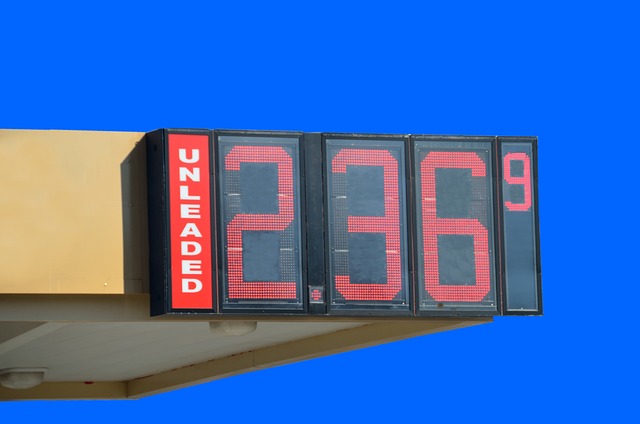
By Philip Moskie
Inflation is said to be entrenched when it rises and the causes of the rise are not likely to come back down once the economy corrects itself. For example Inflationary pressures for things like the cost of labor are unlikely to come down once the economic problem is corrected. Another example is manufactured goods where it takes a lot of cost and effort to raise the prices. It is highly unlikely that those manufacturers will lower their costs again after the crisis. They expended a lot of money, time and effort to change pricing to meet inflation. They don’t want to incur the same costs to come back down.
Table of Contents:
- Introduction
- Definition of entrenched inflation
- Explanation by the Federal Reserve
- Reasons for entrenched inflation
- Excessive government spending
- Economic shifts
- Low interest rates
- Consumer expectations
- Consequences of entrenched inflation
- Weakened purchasing power
- Decline in investment
- Higher borrowing costs
- Reduced competitiveness
- Instability
- How to combat entrenched inflation by the Federal Reserve
- Raising interest rates
- Tightening monetary policy
- Key Takeaways
- Conclusion
Inflation is a long-term rise in the average price of goods and services in an economy. Once it has taken firm hold, it becomes a challenge to control or halt. This article will cover the topic of entrenched inflation, the reasons for it, and its possible effects on the economy as described by the Federal Reserve.
What does the Federal Reserve mean by “entrenched inflation”?
The Federal Reserve uses this term to describe a situation where inflation expectations have become deeply ingrained in the minds of consumers, businesses, and investors. In other words, they expect prices to continue to rise over time, and they base their decisions on this expectation. When this occurs, it can become much harder to control inflation because people’s expectations become self-fulfilling.
Reasons for entrenched inflation
There are several reasons why inflation may become entrenched, including:
Excessive government spending:
If the government spends more than it collects in taxes, it may result in inflation as the government may have to borrow money to make up the difference. This can increase the money supply and drive up prices.
Economic shifts:
Significant changes in the economy, such as a rise in the number of people entering the workforce, can lead to inflation as competition for goods and services increases, driving up prices.
Low interest rates:
Low interest rates can encourage borrowing and spending, leading to increased demand for goods and services and higher prices.
Consumer expectations
Consumer expectations also play a role in the development of entrenched inflation when consumers anticipate that prices will continue to go up. As a result, they may demand higher wages to keep up with expected inflation, causing prices to rise even more. Businesses may also raise their prices if they expect inflation to persist, leading to a cycle of inflation that is hard to control. When this cycle becomes widespread, inflation becomes deeply rooted and difficult to stop.
Consequences of entrenched inflation
Entrenched inflation can have several negative impacts on the economy, such as:
Weakened purchasing power:
When prices increase, people’s money can purchase less goods and services. As a result this causes them to buy less, causing their standard of living to decrease.
Decline in investment:
Expectations of rising prices may discourage investment in the stock market or long-term investments, slowing economic growth.
Higher borrowing costs:
Inflation can make borrowing more expensive as lenders will require higher interest rates to cover the expected decrease in purchasing power.
Reduced competitiveness:
Rising prices can make a country’s goods and services less attractive in the global market, hurting exports and economic growth.
Instability:
Inflation can create uncertainty in the economy, making it difficult for individuals and businesses to plan for the future.
How can the Federal Reserve can combat Entrenched Inflation?
The Federal Reserve has many tools it can use tools to fight inflation. that has become entrenched. Some of these include:
Raising interest rates:
As interest rates increase, borrowing and spending may become less attractive, thereby discouraging such activities.This in turn can reduce demand for goods and services and slow down inflation.
Tightening monetary policy:
The Federal Reserve can reduce the money supply by doing things like selling Treasury bonds or decreasing the amount of money it lends to banks.
Key Takeaways:
- Inflation that has taken root in an economy and is difficult to manage is referred to as entrenched inflation.
- Factors that contribute to entrenched inflation include elevated government expenses, alterations in the economy’s structure, low interest rates, and general expectations.
- The results of entrenched inflation can be severe, including a decline in purchasing power, a decrease in investment, heightened borrowing expenses, decreased competitiveness, and a lack of stability in the economy.
- To combat entrenched inflation, the Federal Reserve may raise interest rates, enforce stricter monetary policies, and take other measures to reduce the money supply.
- It is vital for those in positions of authority to monitor inflation and implement measures to prevent it from becoming entrenched as it can have negative effects on the economy.
Conclusion
Entrenched inflation refers to a persistent rise in the cost of goods and services in an economy, making it hard to control. It may come from government spending, economic shifts, low interest rates, and expectation. Negative impacts include reduced purchasing power, investment, competitiveness, and economic stability. The Federal Reserve has tactics like increasing interest rates and tightening monetary policies to fight entrenched inflation. It’s crucial to monitor inflation and take preventive measures to avoid its damaging effects on the economy and standard of living. Decision-makers must understand the causes and effects of entrenched inflation to maintain a stable and prosperous economy.